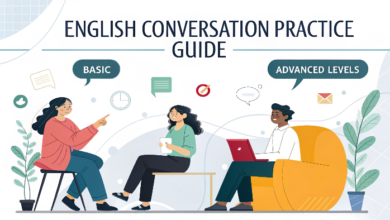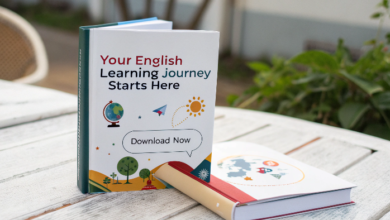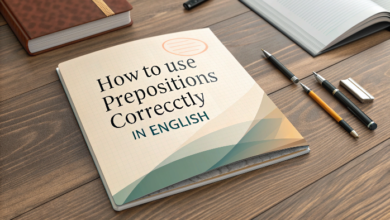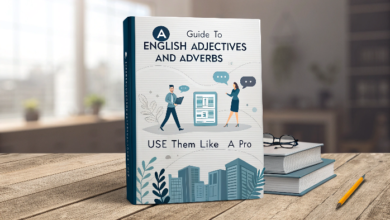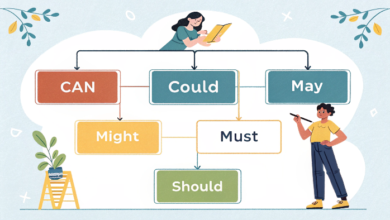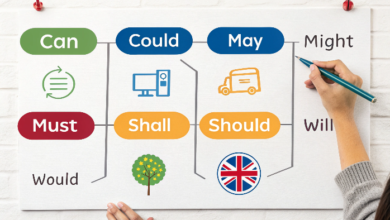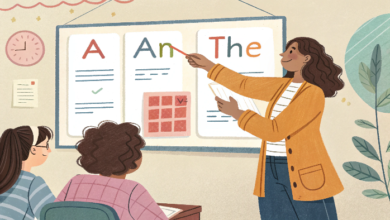How to Use English Conjunctions Effectively
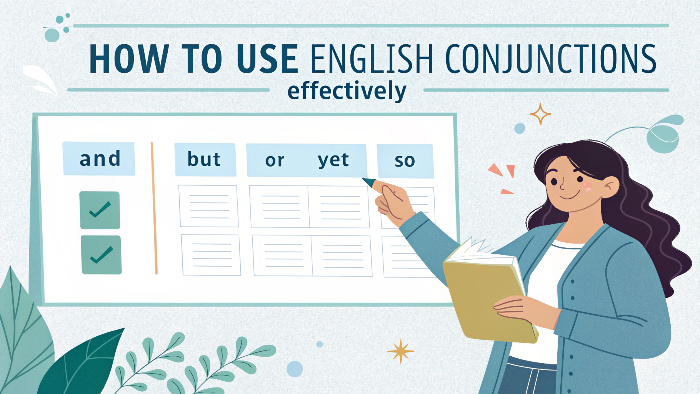
How to Use English Conjunctions Effectively
What Are Conjunctions
Conjunctions are words that connect or link different parts of a sentence. They help to join words, phrases, or clauses to make your sentences more coherent and meaningful.
Conjunctions are essential for fluent communication, as they allow us to show the relationship between ideas and structure our thoughts clearly.
Common conjunctions in English include:
Coordinating Conjunctions: and, but, or, nor, for, so, yet
Subordinating Conjunctions: because, although, if, since, unless, while
Correlative Conjunctions: either…or, neither…nor, not only…but also, both…and
In this guide, we’ll explore how to use each type of conjunction effectively, with examples and practice exercises to help reinforce your understanding.
Coordinating Conjunctions: Connecting Equal Elements
Coordinating conjunctions are used to connect words, phrases, or independent clauses of equal importance. These conjunctions are easy to remember by using the acronym FANBOYS:
F = For
A = And
N = Nor
B = But
O = Or
Y = Yet
S = So
Examples of Coordinating Conjunctions
And: Adds two ideas.
She likes apples and oranges.
But: Shows contrast.
I wanted to go, but I was too tired.
Or: Presents an alternative.
Would you prefer tea or coffee?
For: Expresses reason (similar to “because”).
I stayed home, for it was raining.
Nor: Used in negative sentences to connect two negative ideas.
He neither called me nor texted me.
Yet: Shows contrast or introduces a surprising idea.
She is young, yet very mature.
So: Shows cause and effect.
It was raining, so we stayed inside.
Subordinating Conjunctions: Connecting Unequal Elements
Subordinating conjunctions are used to join a dependent clause to an independent clause. The dependent clause provides additional information but cannot stand alone as a complete sentence.
Common Subordinating Conjunctions
Because: Explains reason or cause.
She went home because she was sick.
Although: Introduces a contrast or unexpected result.
Although it was raining, we went for a walk.
If: Expresses a condition or possibility.
I will go to the park if it stops raining.
Since: Indicates time or cause.
I haven’t seen her since last year.
Unless: Introduces a condition that would prevent something.
I won’t go unless you come with me.
While: Indicates time or contrast.
She read the book while waiting for the bus.
Examples of Subordinating Conjunctions
I stayed home because I was feeling sick.
She studied hard, although the exam was easy.
For more, go to the next page

